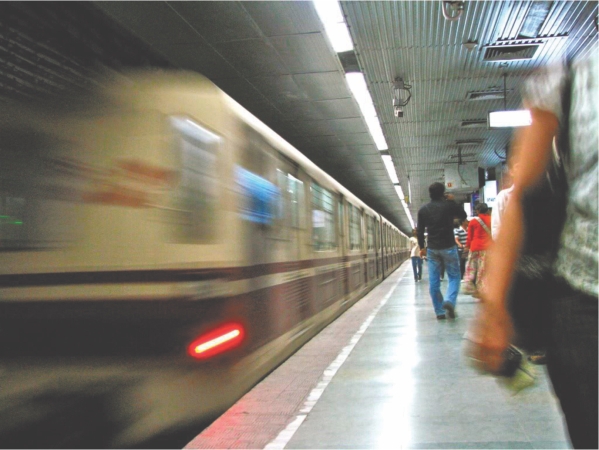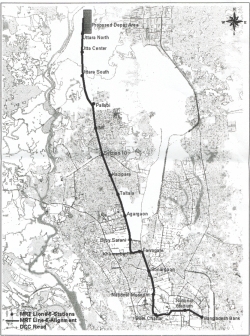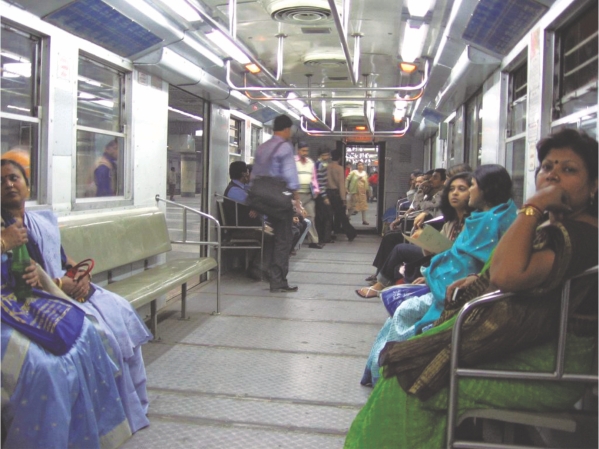| Home - Back Issues - The Team - Contact Us |
 |
| Volume 11 |Issue 16 | April 20, 2012 | |
|
|
City
Lessons from Kolkata's Metro M Abul Kalam Azad
Ashok Sengupta, one of the pioneers of Kolkata's underground metro rail system, has suggested that the government involve a group of selected people who have clear idea about Dhaka's roads and its traffic situation for establishment of a metro rail in Dhaka city. “Selecting people is very important. This particular group of people will not only have engineering degrees but enough experience. They will prepare a comprehensive report on how metro rail will be constructed,” the former chief engineer of Kolkata Metro remarked at a seminar at the Institute of Engineers, Bangladesh on Saturday. Explaining the numerous hurdles during the construction of the Kolkata Metro that were overcome, he said all the related government agencies should be engaged while people should be mentally prepared to face difficulties in daily life when construction begins. “You must give enough advertisement to the media highlighting the good sides of metro rail and the possible suffering to the public, as construction of metro rail will hugely hamper the city's traffic movement,” he said, adding the implementing agency must be prepared to face public anger and widespread protest during construction. Sengupta added that during the metro rail construction, the World Bank strongly opposed them while the central government asked them to stop construction amid public anger and suffering. “You will face a similar situation. So be prepared for that,” said Sengupta at the seminar, attended by several dozen civil engineers. The Kolkata Metro Railway is the first underground railway in India. The 17 kilometre railway extends from Dum-Dum near Netaji Subhas Chandra Bose airport to Tollygunj. The Metro Railway Kolkata was constructed from 1972 to 1995.
Sengupta, who was born in Barisal and studied at Barisal Zila School, strongly suggested involving experienced lawyers to deal with writs against metro rail construction. He suggested forming an efficient legal cell. Giving an example of how they arranged accommodation for workers on army land, Ashok said, “You can't do anything overnight. You need cooperation of all in the society.” A strong advocate of underground metro rail system than overland or elected one, he said underground metro railway is also possible in Dhaka, although it will be costly, time consuming and cause a lot of difficulties. Comparing the Kolkata and Delhi metro rail, he said construction of elevated metro rail is easy but destroyed the aesthetic beauty of Delhi. He mentioned that they had fought a lengthy war in constructing the Kolkata underground metro but now people can understand how it is useful for them.“You can also do it but you need support from the government and the people,” said Ashok. His suggestions came at a time when Bangladesh is struggling to construct its first metro rail system from Uttara Third Phase to Motijheel with Japanese fund. The project is being delayed due to frequent changes of route, lack of coordination among different government agencies and bureaucratic tangle. Speaking as chief guest at the seminar, Prof Jamilur Reza Choudhury said the proposed metro rail route will run through TSC, Curzon Hall and High Court Building.
|
||||
Copyright
(R) thedailystar.net 2012 |


